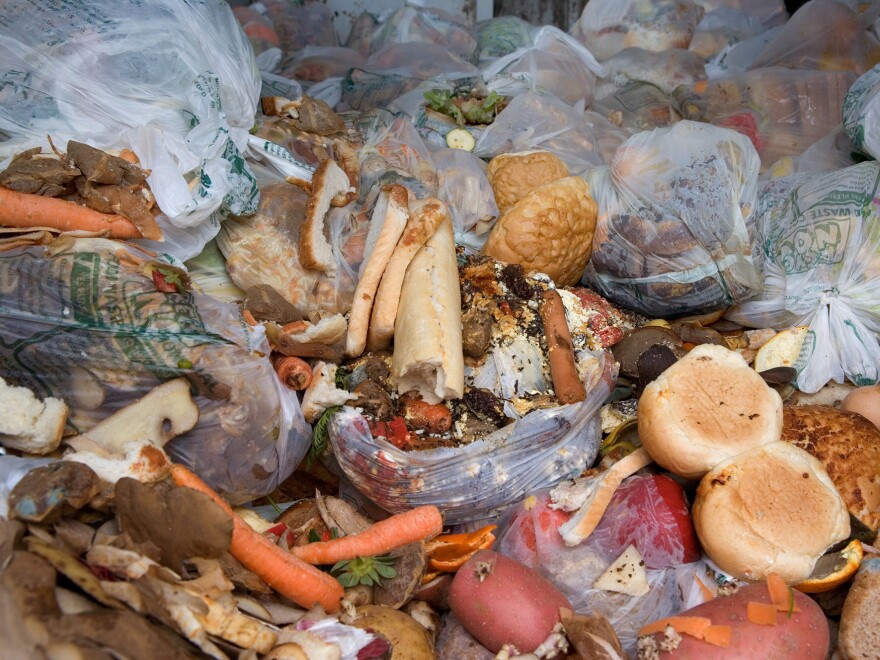If you were to open your refrigerator right now and dig around would you come across any old food? Maybe some leftovers from last week that have gone bad, or perhaps some produce, sitting at the bottom of the drawer and that's now gone moldy?
If you are like the majority of American households, you'd take that food and toss it right in the trash. That food then heads to the nearest landfill, piles up, breaks down and produces methane.
That methane is a greenhouse gas; very bad for the environment. Overall, Americans send nearly 120 billion pounds of food waste to landfills each year.
All that waste, and the methane produced, means food waste is responsible for twice as many greenhouse gas emissions as commercial aviation.
So how do we address this immense problem?
Monday, on the Sound of Ideas, we look at the issue of food waste, and we learn how one community here in Ohio reduced food waste by more than 20%. We also discuss the ins and outs of composting, and how that act is a vital part of the solution to the food waste problem.
To close the program, we learn about the City of Cleveland's plan for vacant lots. Ideastream Public Media's Justin Glanville, as well as the City of Cleveland's Director of Community Development are both with us.
GUESTS:
- Hanna Greer-Brown, Communications Manager, Solid Waste Authority of Central Ohio
- Brian Roe, Van Buren Professor in the Department of Agricultural, Environmental and Development Economics, Ohio State University
- Daniel Brown, Co-Founder, Rust Belt Riders
- Justin Glanville, Senior Producer - Community Storytelling, Ideastream Public Media
- Alyssa Hernandez, Director of Community Development, City of Cleveland









